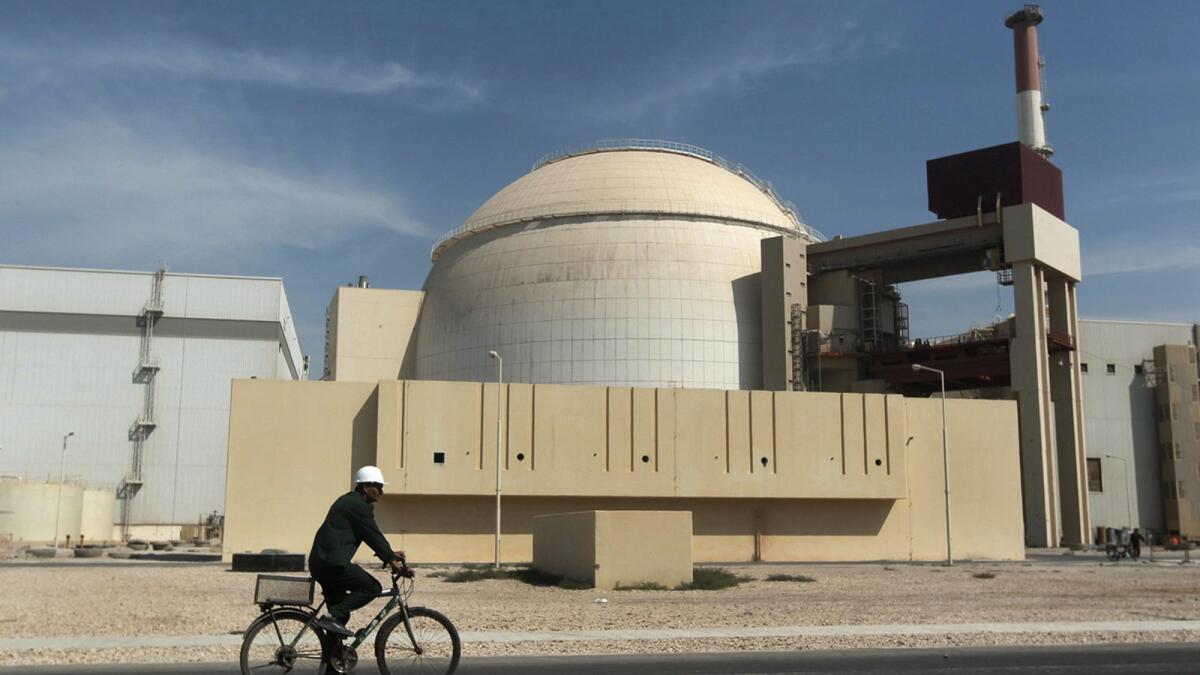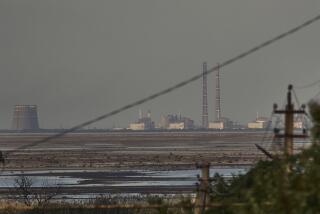Russia’s nuclear deal with Iran creates concern in West

Russia signed a nuclear deal with Iran on Tuesday that prompted anxiety in the West because it appeared to open the way for Tehran to potentially supply domestically produced fuel for its own nuclear reactors.
Officials of Rosatom, the Russian state nuclear company, said they had agreed to build two more reactor units at the Russian-built nuclear power plant at Bushehr, Iran.
In a separate agreement, the two countries said they might later build two more units at Bushehr and four more elsewhere in the country.
Russian officials said the civilian reactors would be operated under supervision of the United Nations’ nuclear watchdog agency, a step aimed at reassuring the West that nuclear materials couldn’t be diverted for a military program.
Russia would supply the fuel for the reactors, as it does for the existing reactors.
But Rosatom raised concern by adding, in its announcement, that it intended to discuss with Tehran “the feasibility of fabricating fuel rods in Iran, which will be used at these power units.”
Although fuel rods are not components in weapons, the fabrication process could undermine the decade-old international effort to prevent Iran from building a nuclear infrastructure and someday gaining the capacity to build a bomb.
A negotiating group of six world powers is now trying to meet a Nov. 24 deadline to forge a comprehensive deal with Tehran that would ease international sanctions on Iran in exchange for curbs on its nuclear program to prevent it from gaining weapons capability.
Two sides wrapped up three days of talks Tuesday in Muscat, Oman. The final scheduled round of negotiations resumes next week in Vienna between Iran and the fire permanent members of the U.N. Security Council plus Germany.
Cliff Kupchan, chairman of the Eurasia Group risk consulting firm, said he believed the Rosatom reactor deal was not intended to disrupt the negotiations, but to prod Iran and the six nations toward an agreement.
By raising the possibility of Iranian fuel production, the Russians were telling the United States and its European allies “you guys better be flexible [in the negotiations] or we might allow Iran to get into the game of supplying its own nuclear fuel needs.”
He said the reactor deals were also an incentive for Iran to cooperate in a broader nuclear agreement, because it would give the government a major expansion of its civil nuclear capability -- a prize to crow about.
“The message to Iran is, ‘We know you need a vctory narrative if you agree to a dea. Here’s part of it,’ ” Kupchan said.
U.S. officials didn’t comment immediately on the reactor deal. But one Western official, who asked to remain unidentified, citing the sensitivity of the diplomacy, said. “We hope Russia will move as they often do on deals with Iran -- slowly.”
Russia has a record of moving cautiously with Iran, including on the Bushehr reactors.
For foreign policy news, follow me at @richtpau
More to Read
Start your day right
Sign up for Essential California for news, features and recommendations from the L.A. Times and beyond in your inbox six days a week.
You may occasionally receive promotional content from the Los Angeles Times.






